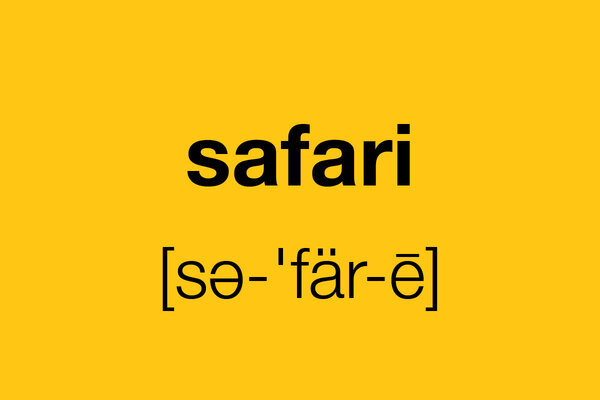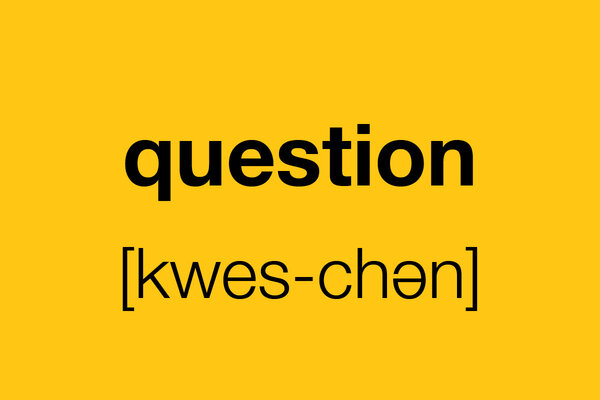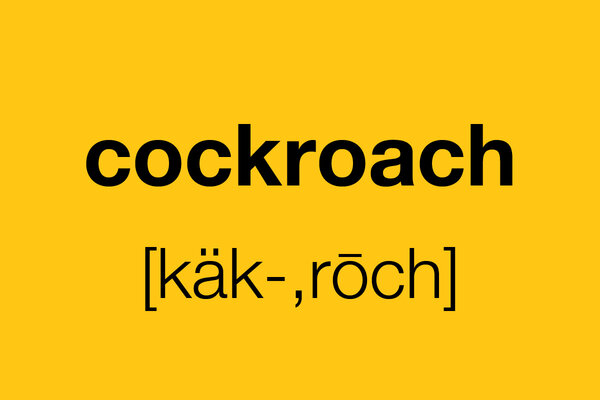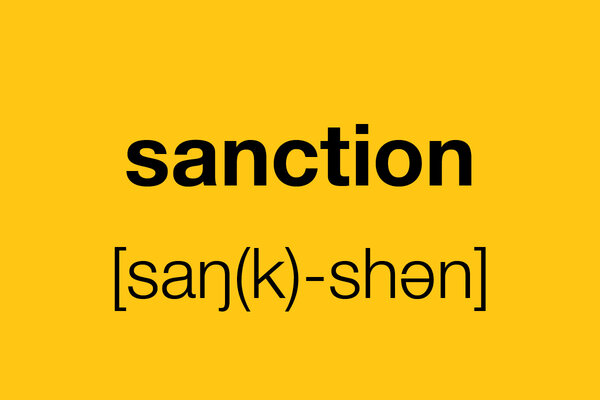All In a Word
 Need just the right word? Why German probably has it.Given the relative freedom of compounding and metaphorical extension, German speakers can manufacture a word for nearly anything they want.
Need just the right word? Why German probably has it.Given the relative freedom of compounding and metaphorical extension, German speakers can manufacture a word for nearly anything they want. Why we send ‘congratulations’ but not ‘congratulation’Some grammarians put "congratulations" on the list of "pluralia tantum," words that occur only in plural, like belongings, leftovers, and trousers.
Why we send ‘congratulations’ but not ‘congratulation’Some grammarians put "congratulations" on the list of "pluralia tantum," words that occur only in plural, like belongings, leftovers, and trousers. Taking a ‘safari’ through Swahili-inspired words"Safari," one of Swahili’s best-known contribution to English, has Arabic roots – a result of close ties between Oman and the Tanzanian coast.
Taking a ‘safari’ through Swahili-inspired words"Safari," one of Swahili’s best-known contribution to English, has Arabic roots – a result of close ties between Oman and the Tanzanian coast. ‘If’ brings us into the realm of possibilitiesThinking and talking about possibilities and imagined futures is essential to the way we humans navigate our lives.
‘If’ brings us into the realm of possibilitiesThinking and talking about possibilities and imagined futures is essential to the way we humans navigate our lives. ‘Wildly’ encroaches on the territory of ‘widely’Does the price of oil fluctuate wildly or widely? These two words are often used interchangeably – can they actually be synonyms?
‘Wildly’ encroaches on the territory of ‘widely’Does the price of oil fluctuate wildly or widely? These two words are often used interchangeably – can they actually be synonyms? What Old English reveals about the cultureWords like Gafol-fisc (“tax fish”) have disappeared from modern English, as we no longer pay taxes with bushels of fish.
What Old English reveals about the cultureWords like Gafol-fisc (“tax fish”) have disappeared from modern English, as we no longer pay taxes with bushels of fish. ‘Woolgathering’ and other not-so-idle pursuitsToday, "woolgathering" sounds harmless. But its negative connotations – like absent-mindedness – reflect past scorn for impoverished women.
‘Woolgathering’ and other not-so-idle pursuitsToday, "woolgathering" sounds harmless. But its negative connotations – like absent-mindedness – reflect past scorn for impoverished women. Feeling reluctant to admit your ‘reticence’?"Reticent" has meant “reluctant” almost as long as it's meant “reserved.” Language mavens have agitated against this "new” use dating from the 1800s.
Feeling reluctant to admit your ‘reticence’?"Reticent" has meant “reluctant” almost as long as it's meant “reserved.” Language mavens have agitated against this "new” use dating from the 1800s. How lawyers assumed the title of ‘esquire’The U.S. Constitution prevents the government from issuing titles of nobility, but the not-quite-a-title esquire slipped through.
How lawyers assumed the title of ‘esquire’The U.S. Constitution prevents the government from issuing titles of nobility, but the not-quite-a-title esquire slipped through. Why does English have so many words for 'lawyer'?The solicitor general reports to the attorney general, who heads the Department of Justice. The president’s lawyer is the White House counsel. Why?
Why does English have so many words for 'lawyer'?The solicitor general reports to the attorney general, who heads the Department of Justice. The president’s lawyer is the White House counsel. Why? How did ‘Juneteenth’ get its name?The vagueness of -teenth might be intentional, to symbolize the way liberty was experienced, piecemeal, on different days as the news spread.
How did ‘Juneteenth’ get its name?The vagueness of -teenth might be intentional, to symbolize the way liberty was experienced, piecemeal, on different days as the news spread. Monkeys in sleeves and other delightful idiomsIn English, the cat is out of the bag. But our Dutch-speaking friends talk of monkeys coming out of sleeves.
Monkeys in sleeves and other delightful idiomsIn English, the cat is out of the bag. But our Dutch-speaking friends talk of monkeys coming out of sleeves. Sorting out the changing meaning of ‘grooming’It’s “grooming” when we take care of our dogs, cats, and horses. A more sinister sense predominates, however.
Sorting out the changing meaning of ‘grooming’It’s “grooming” when we take care of our dogs, cats, and horses. A more sinister sense predominates, however. Ukraine's 'Surzhyk' hybrid language came from 'flour mix'Once shunned by both the Ukrainian and Russian elite, Surzhyk has been adopted by Ukraine’s counterculture.
Ukraine's 'Surzhyk' hybrid language came from 'flour mix'Once shunned by both the Ukrainian and Russian elite, Surzhyk has been adopted by Ukraine’s counterculture. Going in circles by 'begging the question'What does the phrase 'begs the question' really mean, and why is its use – or misuse – so contentious?
Going in circles by 'begging the question'What does the phrase 'begs the question' really mean, and why is its use – or misuse – so contentious? When names for cockroaches reflect national rivalriesPoles might have francuzi (“Frenchies”) in their cupboards, while Rhaeto-Romance speakers in Switzerland could have a sclaf (“Slav”) or two.
When names for cockroaches reflect national rivalriesPoles might have francuzi (“Frenchies”) in their cupboards, while Rhaeto-Romance speakers in Switzerland could have a sclaf (“Slav”) or two. Ukraine and Russia's Cyrillic linksCurrent attitudes toward the use of the Cyrillic versus Latin script reflect religious differences and shifting political and economic ties.
Ukraine and Russia's Cyrillic linksCurrent attitudes toward the use of the Cyrillic versus Latin script reflect religious differences and shifting political and economic ties. ‘Sanctions’ and ‘flywheels’ dominate the newsAthens applied sanctions to a rival city-state in 432 B.C., but the word acquired its current economic and political sense after World War I.
‘Sanctions’ and ‘flywheels’ dominate the newsAthens applied sanctions to a rival city-state in 432 B.C., but the word acquired its current economic and political sense after World War I. How "envy" is different than "jealousy"One has Latin roots, the other Greek. Both are used interchangeably and, perhaps, incorrectly. But is it worth nitpicking?
How "envy" is different than "jealousy"One has Latin roots, the other Greek. Both are used interchangeably and, perhaps, incorrectly. But is it worth nitpicking? Schedulers stumble over what ‘next’ week meansThe word "next" is what linguists and philosophers call an "indexical" – a "linguistic expression whose reference can shift from context to context."
Schedulers stumble over what ‘next’ week meansThe word "next" is what linguists and philosophers call an "indexical" – a "linguistic expression whose reference can shift from context to context."



